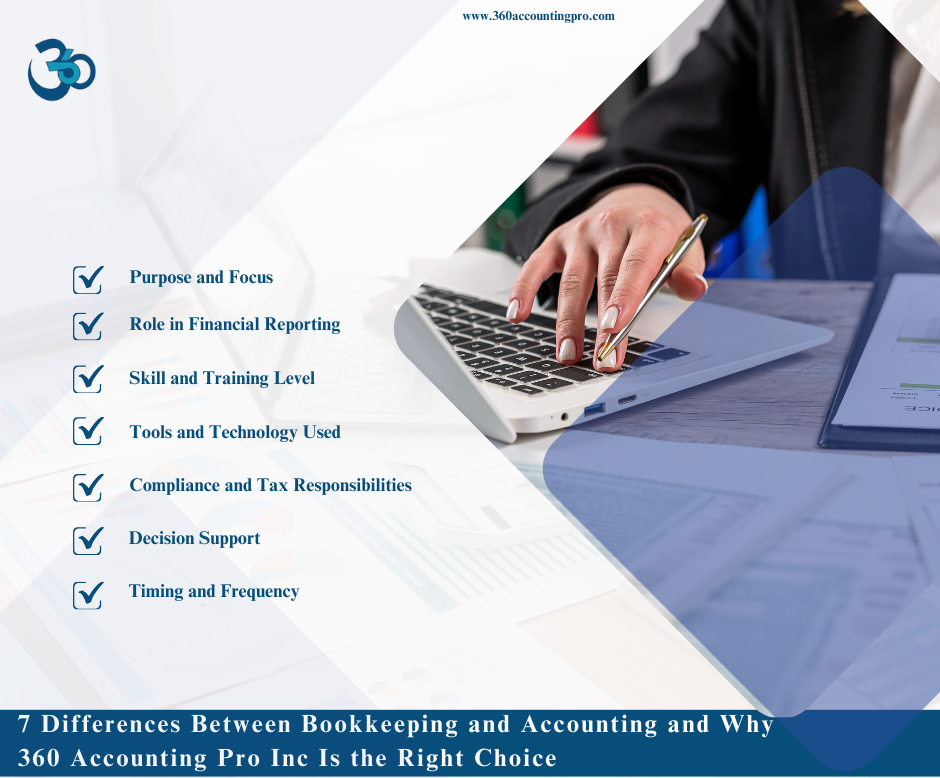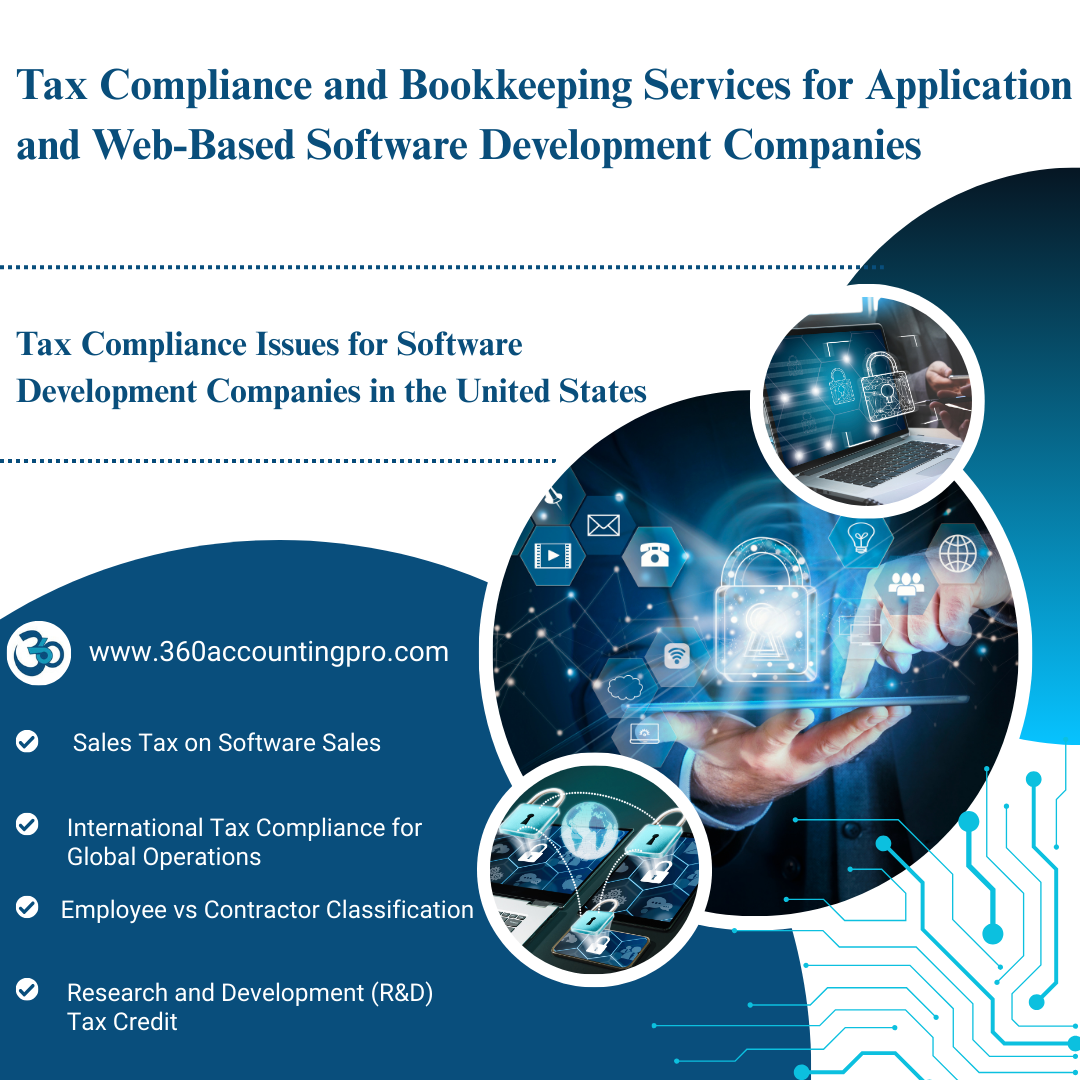

05-05-25
If you are a business owner, you have likely heard the terms bookkeeping and accounting used interchangeably. However, while both are essential to financial management, they serve very different purposes. Understanding the differences between bookkeeping and accounting can help you make informed decisions about your business finances and choose the right support system.
In this blog, we will outline the 7 major differences between bookkeeping and accounting, and explain why 360 Accounting Pro Inc is your best partner for both.
Bookkeeping is the process of recording daily financial transactions, such as sales, purchases, and expenses.
Accounting goes a step further by analyzing, interpreting, and summarizing financial data to help guide business decisions.
In short: Bookkeeping is about data entry; accounting is about data analysis.
Bookkeepers prepare basic financial documents like ledgers, trial balances, and journals.
Accountants use this information to produce financial statements, including the profit and loss statement, balance sheet, and cash flow statement.
In short: Bookkeeping supplies the data; accounting delivers the results.
Bookkeeping typically requires knowledge of accounting software and attention to detail, but does not always require a formal degree.
Accounting involves deeper financial understanding, certifications, and often a professional degree like CPA or EA.
In short: Bookkeepers manage the records; accountants provide expert insights and financial guidance.
Bookkeepers use tools like QuickBooks, Xero, and Wave to record daily entries and reconcile accounts.
Accountants use advanced software to create reports, perform audits, and offer forecasts or budgeting strategies.
In short: Bookkeepers use tools for entry and tracking; accountants use tools for analysis and planning.
Bookkeepers organize and maintain records that help with tax filings.
Accountants prepare and file tax returns, offer tax planning, and ensure regulatory compliance.
In short: Bookkeepers prepare for tax season; accountants manage it.
Bookkeepers typically do not offer business advice or interpretation of data.
Accountants provide strategic advice and help business owners make informed decisions based on financial reports.
In short: Bookkeepers track activity; accountants drive strategy.
Bookkeeping is a daily or weekly task, keeping records up to date.
Accounting is performed monthly, quarterly, or annually for reporting and planning.
In short: Bookkeeping is ongoing; accounting is periodic.
At 360 Accounting Pro Inc, we bring together the best of both services — combining accurate bookkeeping with expert-level accounting and tax guidance. With over 17 years of experience, our team supports small and mid-sized businesses across various industries in the United States and the UAE.
Daily transaction recording
Bank and credit card reconciliation
Accounts receivable and payable tracking
Sales tax and payroll management
Cloud accounting with QuickBooks or Xero
Monthly financial statement preparation
Tax filing and tax planning
Budgeting and cash flow forecasting
R&D credit, estimated tax, and compliance support
Fractional CFO services for business growth
Certified and experienced professionals (CPA, EA, ProAdvisors)
Industry-specific knowledge: real estate, eCommerce, tech, law, and more
Affordable, transparent pricing for businesses of all sizes
Dedicated client support and proactive financial advice
Secure, cloud-based systems for real-time access
Understanding the difference between bookkeeping and accounting is key to managing your business finances properly. Both roles are essential and work hand-in-hand to support your financial health.
Whether you need help keeping your books accurate or need expert advice for compliance and planning, 360 Accounting Pro Inc is here to help.
Get in touch today to schedule a free consultation and take control of your financial success.
Tags : #BookkeepingVsAccounting, #BusinessFinances, #AccountingServices, #BookkeepingServices, #FinancialManagement, #TaxPlanning, #SmallBusinessAccounting, #BusinessGrowth, #CloudAccounting, #QuickBooks, #Xero, #TaxCompliance, #CPA, #FinancialReporting, #TaxFiling, #AccountingSoftware, #R&DtaxCredits, #FractionalCFO, #BusinessConsulting, #AccountingSupport, #FinancialStrategy, #BookkeepingTips, #TaxPreparation, #ComplianceSupport, #BusinessInsights, #FinancialPlanning

















































.jpg)
.jpg)
.jpg)
.jpg)


).jpg)














 Get A Quote
Get A Quote
Leave A Comment